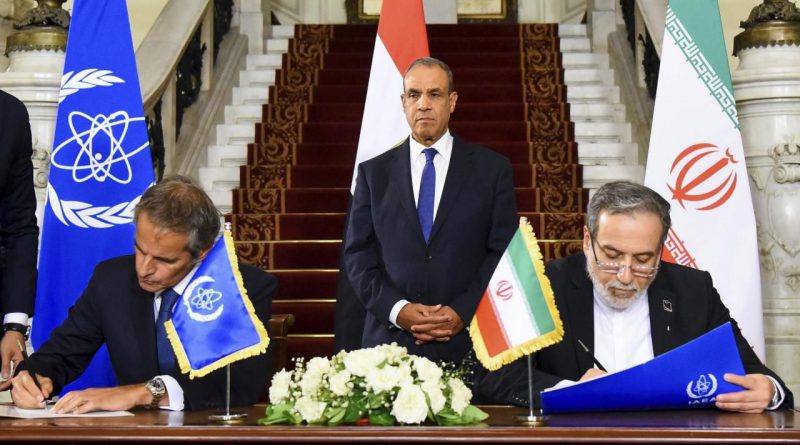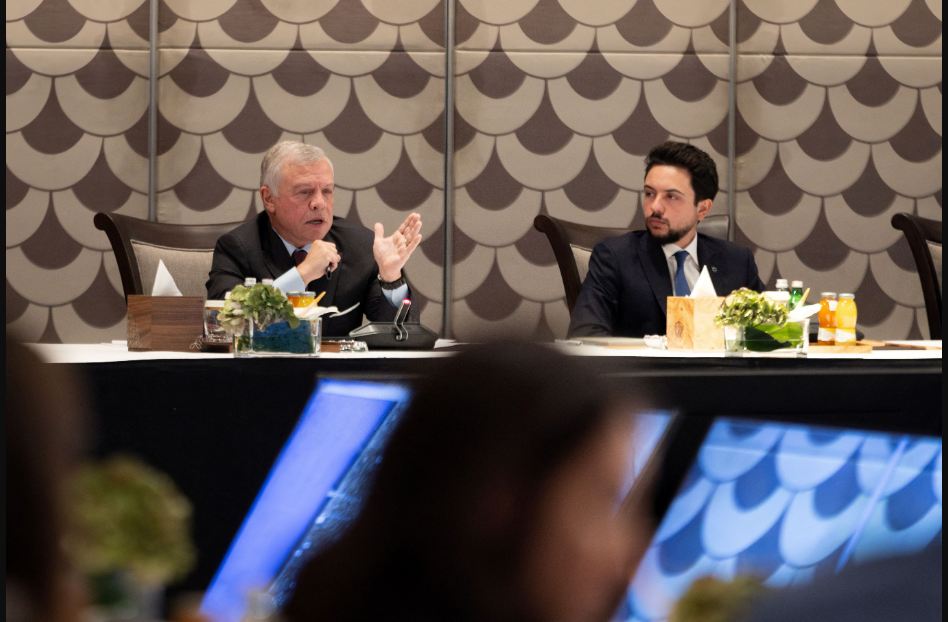The Iran-IAEA Deal Signed in Cairo: Egypt Shows Its Weight
By acting as a trusted mediator, Egypt has indirectly contributed to a framework that tempers immediate threats and opens avenues for broader dialogue.
The Middle East has witnessed a rare demonstration of regional diplomacy at its finest. In September 2025, Egypt played a decisive role in facilitating an agreement between Iran and the International Atomic Energy Agency (IAEA) to resume inspections at Iranian nuclear sites. The deal, which drew attention from Europe, the United States, and Israel, underscores Egypt’s growing influence as a mediator capable of bridging deep-seated divides. Far from a symbolic gesture, this achievement signals that Egypt is not only present in regional affairs but can actively shape outcomes that impact security, diplomacy, and strategic stability across the Middle East.
A Regional Role Reasserted
On September 9, 2025, Egypt cemented its status as a central player in Middle Eastern diplomacy. In Cairo, an agreement between Iran and the International Atomic Energy Agency (IAEA) was signed to resume nuclear inspections across Iranian facilities, a development that has drawn attention across Europe, the United States, and the Gulf. This historic accord was facilitated by Egypt, underscoring the country’s capacity to bring together historically antagonistic actors and act as a trusted mediator. Egyptian Foreign Minister Badr Abdelatty, Iranian Foreign Minister Abbas Araghchi, and IAEA Director General Rafael Grossi were present as the framework was formalized.
Egypt’s role in hosting and mediating the negotiations highlights not only its diplomatic acumen but also its strategic patience and vision. The Egyptian government, acting discreetly yet decisively, engaged the parties months before the public announcement, signalling that it has both the patience and the tools to operate effectively in complex, high-stakes international negotiations. By doing so, Cairo has demonstrated that it is more than a participant in regional diplomacy; it is a driver capable of shaping outcomes that affect the wider Middle East.
This achievement reinforces the notion that Egypt remains a heavyweight in the region. Despite shifts in regional alignments and the emergence of new actors, Egypt has preserved its influence and can exert it when it aligns strategic interests with practical diplomacy. The successful facilitation of the Iran-IAEA agreement is proof that Egypt is still capable of producing tremendous, tangible diplomatic results—achievements that rival those of global powers and demonstrate that the country can actively shape the regional agenda.
Egypt’s diplomacy goes beyond symbolism. By bridging the gap between Iran and the IAEA, Cairo has positioned itself as a credible broker whose influence extends to both regional and global issues. This sends a strong signal to the international community: Egypt is not just present; it is a state that can affect outcomes in critical matters of regional security, nuclear compliance, and multilateral cooperation. In doing so, Egypt has quietly but firmly reminded the Middle East and the world that its voice, strategy, and influence are indispensable.
The Iran-IAEA Agreement: Implications and the Art of Balance
The Iran-IAEA agreement represents a delicate diplomatic balancing act. At its core, it re-establishes the IAEA’s access to all Iranian nuclear sites, including those affected by recent military strikes, a vital step in reducing nuclear opacity and mistrust. Yet beyond the technical aspects, the deal carries broader implications for Europe, the United States, and Israel, all of whom have differing stakes in Iran’s nuclear trajectory.
For Europe, the agreement provides a framework to address longstanding concerns over Iran’s compliance with the 2015 nuclear deal. France, Germany, and the United Kingdom had previously pushed to “snap back” sanctions, citing non-compliance. The resumption of IAEA inspections, coupled with Egypt’s mediation, offers a credible mechanism to verify Iran’s nuclear activities. This, in turn, could provide European policymakers with confidence that diplomatic engagement can yield results, potentially reducing the risk of unilateral action or the reimposition of sanctions that might escalate tensions.
In the United States, the agreement is cautiously welcomed. Washington has long sought assurance that Iran’s nuclear program remains peaceful. While the U.S. is not a direct party to the Cairo negotiations, the agreement helps reinforce a framework for monitoring and verification. U.S. policymakers, aware of the fragile regional equilibrium, recognize that Egypt’s intervention provides a stabilizing influence. The successful facilitation of these talks signals that regional actors, when engaged constructively, can complement international efforts to manage proliferation risks.
Israel remains the most sceptical stakeholder, consistently voicing concerns about Iran’s nuclear ambitions. While the Cairo-brokered accord addresses some verification needs, Israel warns that inspections alone cannot prevent clandestine development of nuclear weapons. Nevertheless, even within Israeli circles, there is acknowledgment that Egypt’s role introduces a stabilizing influence in a region prone to escalation. By acting as a trusted mediator, Egypt has indirectly contributed to a framework that tempers immediate threats and opens avenues for broader dialogue.
The broader geopolitical lesson is clear: diplomacy led by capable regional actors can achieve results where global powers face stalemates. Egypt’s mediation shows that complex disputes, often mired in mistrust and historical grievances, can be approached with pragmatism, patience, and credibility. By leveraging its regional legitimacy and diplomatic network, Egypt has demonstrated that it is fully capable of navigating sensitive issues and delivering outcomes that serve both regional stability and international security objectives.
Conclusion: Egypt’s Enduring Influence and Regional Vision
The Iran-IAEA agreement marks not only a milestone in nuclear diplomacy but also a defining moment for Egypt’s regional role. The country has proven that it can execute extraordinary diplomatic achievements when it applies strategic focus and resources. Its facilitation of these talks has reshaped perceptions: Egypt is not only a historical heavyweight but also a modern power capable of influencing outcomes in high-stakes, multi-party negotiations.
Egypt’s involvement underscores a central truth of regional politics: presence alone is insufficient without capability. The Cairo-brokered agreement exemplifies that Egypt maintains both, with a diplomatic apparatus capable of achieving results that few other regional states can match. By actively engaging in complex negotiations, the Egyptian government has positioned the country as a stabilizing force, one capable of mitigating conflict, reducing tensions, and fostering cooperation among actors with divergent interests.
Moreover, Egypt’s success demonstrates the strategic dividends of an assertive yet measured approach to diplomacy. It has shown that even in a turbulent region, a state that balances credibility, patience, and leverage can achieve outsized influence. The IAEA-Iran agreement is a tangible reflection of this principle, one that reinforces Egypt’s capacity to shape regional dynamics and secure its place as a central actor in Middle Eastern politics.
Looking ahead, Egypt’s role in facilitating cooperation between Iran and the IAEA sets a template for future regional engagement. It illustrates that the country’s diplomatic apparatus is robust, adaptive, and capable of securing outcomes that promote stability, verify compliance, and build confidence across rival states. Egypt has demonstrated it can be both a mediator and a force multiplier for regional security, reinforcing its status as a pivotal power.
To conclude, the Cairo-brokered deal is more than a technical agreement; it is a symbol of Egypt’s enduring presence and strategic foresight. It affirms that the country can exercise significant influence over regional matters, balancing competing interests, and facilitating dialogue in ways that enhance security and stability. As the Middle East continues to navigate the complexities of nuclear proliferation, interstate rivalries, and shifting alliances, Egypt’s proven capacity to deliver substantial diplomatic achievements positions it as an indispensable player and a model for regional leadership. Egypt has made clear that it remains here, fully engaged, and capable of reshaping regional dynamics to serve stability, security, and cooperative diplomacy. The IAEA-Iran agreement is only the beginning; the country’s assertive, strategic presence promises to continue influencing the trajectory of the Middle East for years to come.


